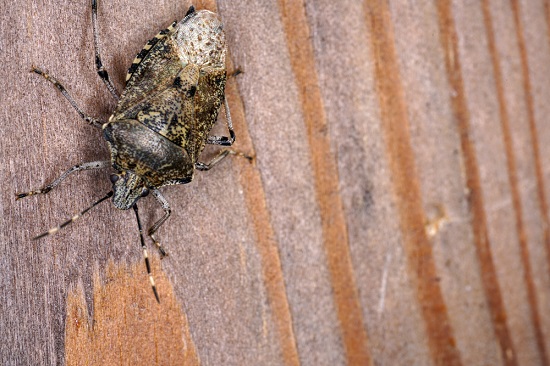
Invasive species are rapidly spreading across the United States, causing damage to property and new health risks. Invasive pests can spread through unintentional or accidental means. They have no natural predators and are able to rapidly grow in different areas of the country. That’s why you need to have proper pest control measures set up in your home.
Pest Control Tips
These are the top five invasive pests you should be aware of in your home.
Brown Marmorated Stink Bugs
The brown marmorated stinkbug originated in Asia and arrived in Pennsylvania in 1996. These bugs are now found in 44 US states, and they have become a nuisance to many homeowners.
They are not considered to be a health risk to humans but stink bugs can hide in attics, crawl spaces, walls and attics to find shelter during winter. In early spring, stink bugs return to the home and become active.
They are known for their unpleasant odor when crushed. You can keep these pests out of your home by sealing any gaps in the window or door screens and vacuuming up any insects that are found within.
Asian Longhorned ticks
The Asian longhorned tick was first spotted in New Jersey in 2017. It arrived from Asia where it can transmit deadly diseases to humans and livestock.
They are an invasive species that can quickly multiply as females reproduce independently of males. The Asian longhorned tick is also known to transmit Lyme, Ehrlichiosis and Japanese spotted fever.
It is most well-known for transmitting SFTS, which is fatal in 15% of its victims. Use insect repellents containing at minimum 20 percent DEET to protect yourself and your family. Wear long clothes if you can, to minimize skin exposure.
To prevent tick-borne disease transmission, it is important to check your family, friends, and pets after they have walked through tall grass and wooded areas.
Spotted Lanternflies
Spotted lanternflies were first reported in Pennsylvania in 2014. They are now being found in New Jersey and Connecticut, Delaware, Virginia.
They pose a serious threat to the grape, fruit, and logging industries because they feed on the sap of many trees and plants. They can also lay eggs on outdoor furniture, rocks, and trees.
Scrape off any egg masses found around your house and put them in a bag. To report any sightings or migrations of this invasive species, you should contact the Department of Agriculture.
Red Imported Fire Ants (RIFA)
The red imported fire ant (RIFA), a Brazilian native, was first spotted in Alabama in 1983. They can be found in the western and southern U.S., and they will attack anyone who attempts to disturb their nest.
They are often introduced to new areas by way of potted plants, trees, or shrubs. These tiny, invasive pests are named for their painful stings. They can form into raised welts which then become white pustules. People allergic to insect bites might react more severe.
These pests can be found outside, but they can also enter structures via HVAC units and AC units. To prevent them from entering, avoid RIFAs and mound nests. Another effective residential pest control tip is to seal all cracks and crevices.
Formosan Termites
The Formosan termite comes originally from China. It was introduced to the United States through military cargo shipments following World War II. The southern United States now has this termite species in Hawaii, North Carolina and South Carolina.
It can also be found in Georgia, Virginia, Texas, Louisiana, Alabama. Florida, Tennessee, and California. These pests are often called the “super termite” and can chew through wood, wallpaper, and flooring. A mature Formosan termite colony will consume about one foot of 2×4 wood every 25 days. This can cause severe structural damage to homes in as little as six weeks.
Keep firewood stored at least 20 feet from your house, 5 inches above the ground, and a gap of one inch between the soil and the wood parts of your home. This will help prevent infestations. Also, remove moisture sources from the home. It is a good idea to schedule an annual professional termite inspection for homeowners.
If you suspect that an infestation of invasive species is occurring, contact a pest control professional immediately. A professional in pest control in Myrtle Beach can help identify the species and recommend the best course of action to eliminate the infestation before it becomes a serious problem.
Call Zap Pest Control Inc. now and let our team handle all of your pest problems.
Zap Pest Control Inc.
2507 Forestbrook Rd Suite G
Myrtle Beach, SC 29588
843-654-1927
http://zappests.net/

No comments:
Post a Comment